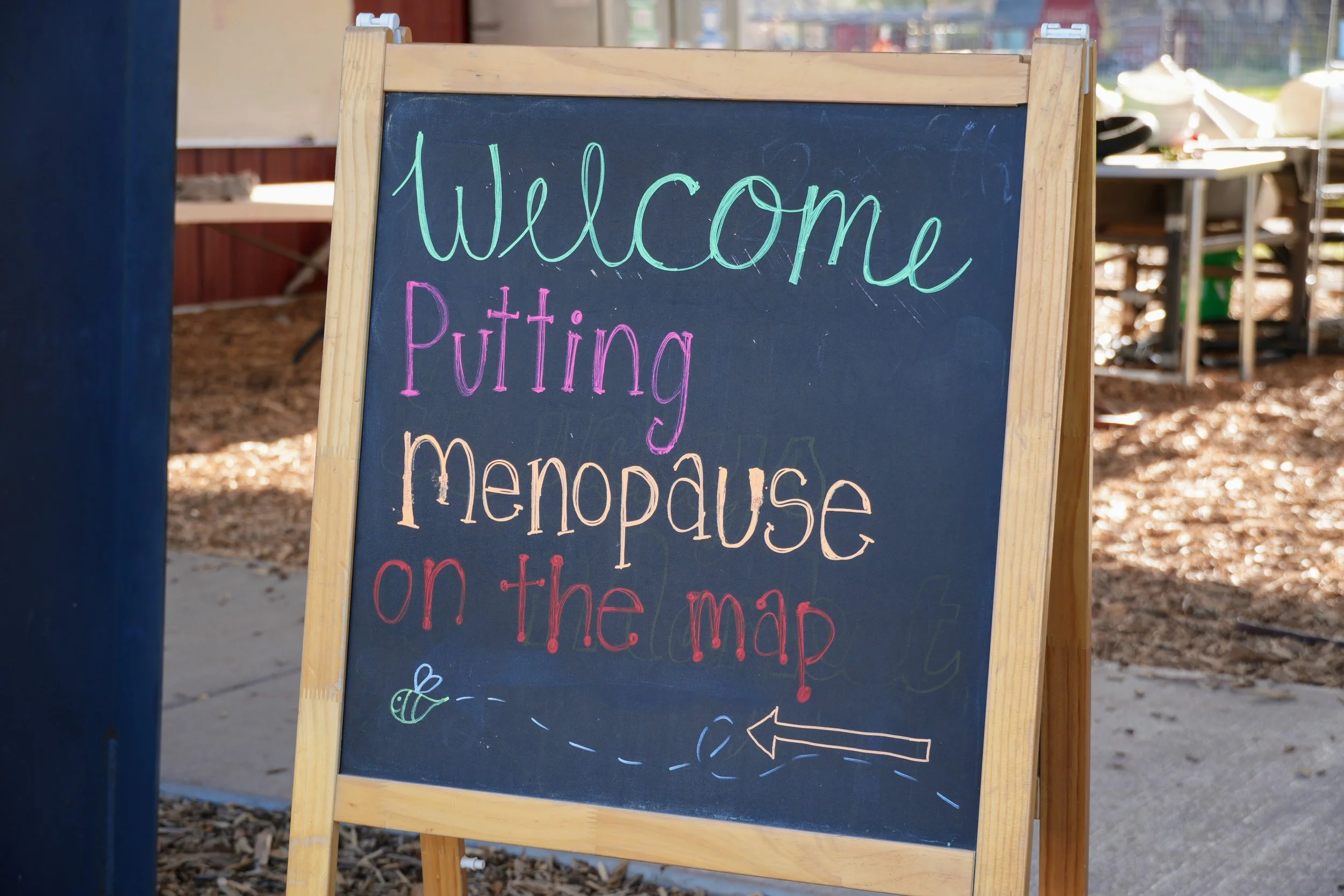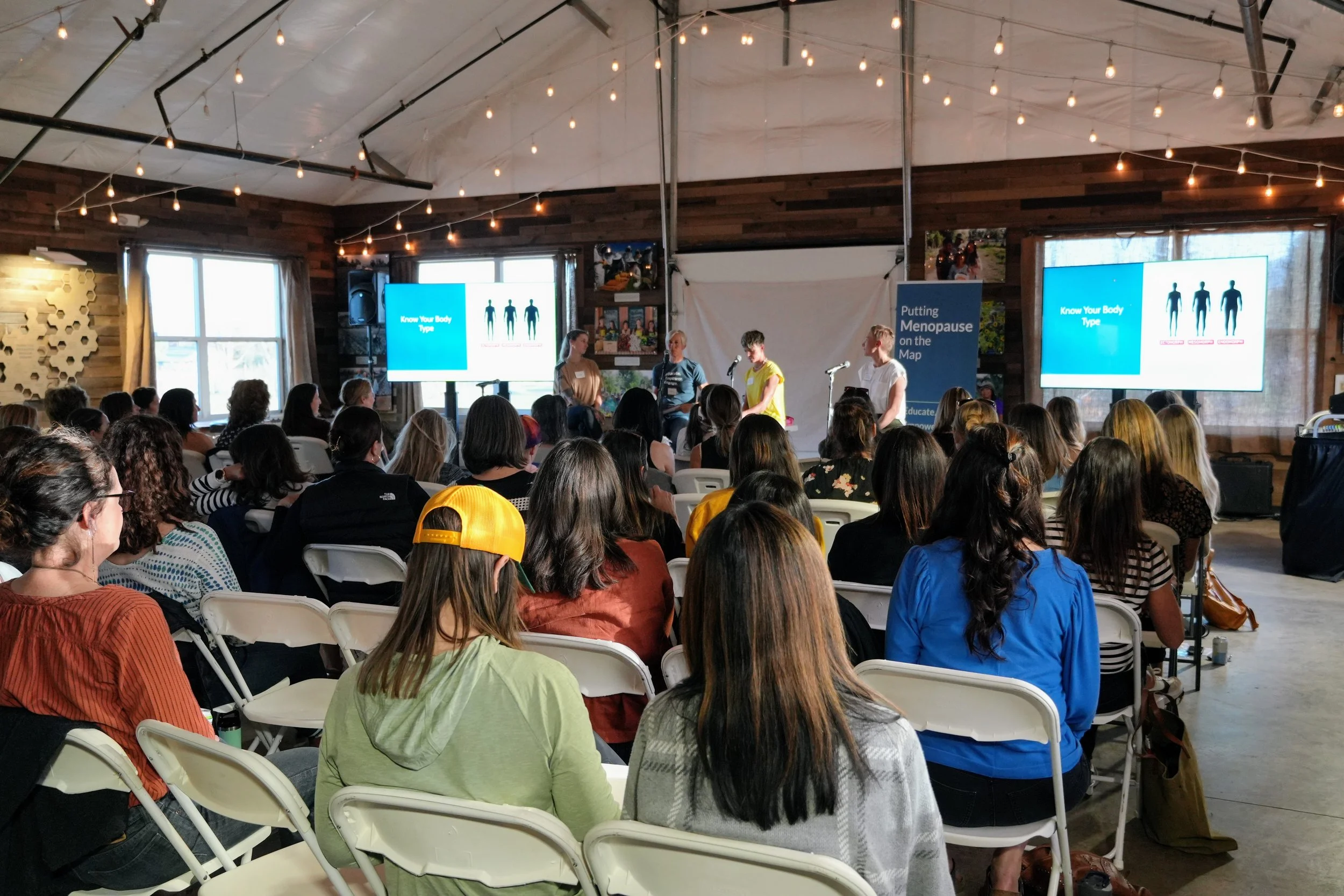April 2025 @ Growing Gardens
The "Putting Menopause on the Map" (PMotM) April 2025 series, held at the beautiful Growing Gardens campus in Boulder, CO, built successfully upon the community momentum established in January. This second educational workshop confirmed the sustained, urgent demand for honest, accessible midlife health education, drawing 75 participants to chart their individualized "MyMenoMap".
This two-part series saw a shift in format, incorporating a longer, four-hour Sunday session and a focused weeknight discussion. The content reinforced core messages, Empowerment with Awareness and Prioritizing Long-Term Health, while diving deeper into actionable steps concerning hormonal, physical, and holistic well-being.
Highlights and Key Discussions
Menopause 1.0: Confusion, Chaos & Choices focused on fundamentals, incorporating discussions led by a range of providers, including physicians, a pelvic floor physical therapist, an acupuncturist, and nutrition coaches. The session emphasized recognizing the body’s changes, understanding personal health history, and building a strong support system.
Nutrition and Stress Relief: A chat featuring Meg Forbes Dopp (RD), Cameron Elmendorf (L.Ac.), and Kim McCormack (CHC) underscored the importance of "Nourishing Our Bodies." Practical and humorous check-ins challenged attendees to evaluate their digestive health by asking: "Are you pooping every day?!?!". Stress reduction techniques included mindfulness, breathwork, setting boundaries, and exploring the benefits of cold versus heat therapy.
Physical and Pelvic Health: Attendees participated in an integrated movement break titled "Squat. Together. 1 minute of body weight squats". The Pelvic Health segment encouraged essential self-awareness through prompts like: "Do you know what your vulva looks like?" and addressing common issues like incontinence with the query, "Did you pee yourself when you jump, sneeze, or laugh?".
Menopause 2.0: Thriving Forward Together focused intensively on using exercise, sleep, and medical guidelines to achieve long-term health goals.
Strength and Exercise: Experts emphasized that exercise serves as "Good Stress" and reinforced the critical role of Resistance Training for improving bone density and strengthening connective tissues. Plyometrics & Impact Training were highlighted for encouraging bone growth and improving insulin sensitivity. A core piece of athletic wisdom cited was that "Women Are Not Small Men" (Dr. Stacey Sims), confirming that training must be tailored to the female physiology.
The Power of Sleep: Drawing on research, the presentation framed good sleep as a revolutionary treatment that protects against cancer, dementia, and cardiovascular risks, and even makes one "more creative" and "less depressed".
Hormonal and Long-Term Health: Discussions stressed the importance of tracking health markers, noting that Cardiovascular Disease (CVD) is the #1 killer of women. Attendees were encouraged to discuss screening options, such as DEXA bone density scans, and to define their "future identity as an 80-year-old woman" to ensure that current habits support long-term wellness.
The April workshop successfully continued the mission to connect women with a network of informed, local providers dedicated to a holistic approach to menopause management.




